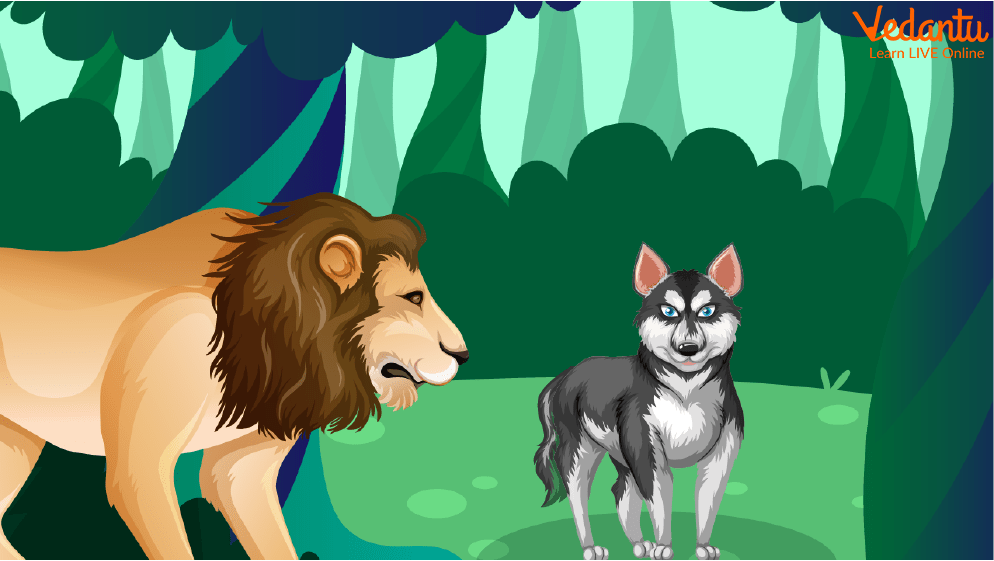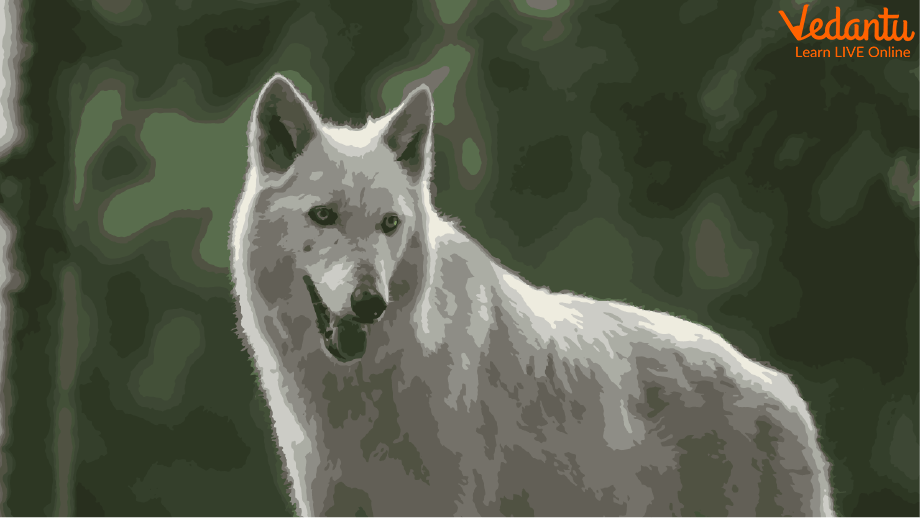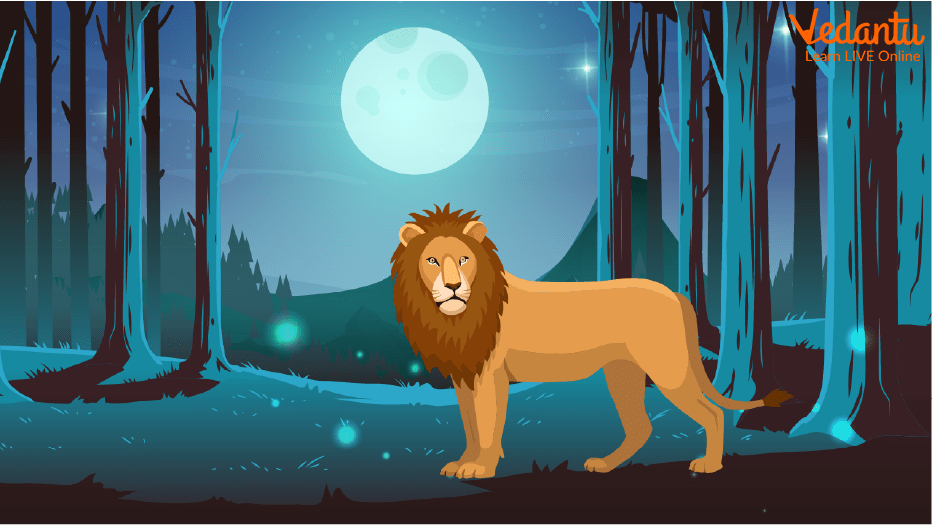The Lion and the Wolf Story

Introduction to the Lion and the Wolf Story
Indian tales frequently feature lions, wolves, goats, and other forest-dwelling creatures as the subjects of children's stories. The young kids will be intrigued by this and develop a passion for reading. These young minds will be inspired to read more books as a result. The youngster will get an understanding of sounds, words, and language as well as early reading abilities as a result of this. In this article, two stories will be discussed, one about a self-pride wolf and the other about a powerful lion. Both the stories will be fun to learn and will be a life lesson full of morals for the children.

The Wolf and the Lion
Self Pride Wolf
The Wolf and the Lion once survived and thrived with other animals in a forest. One evening, the Wolf emerged from his den in good spirits and with a ravenous appetite. The wolf appeared much larger than he actually was as he ran because the sinking sun projected his shadow far out on the ground. Why look at how huge I am, the Wolf boasted. Imagine me escaping from a weak lion! He or I will be made the king, as I will demonstrate. A hundred times more powerful than the Lion in his own shadow, the wolf takes satisfaction in the fact that he is no lower than the lion.

The Self Proud Wolf
The Powerful Lion
He was suddenly completely obscured by a huge shadow, and a Lion instantly killed him with a single strike. In the midst of his arrogant thoughts, a lion attacked him and killed him. He cried out in regret too late, "Wretched me! The Wolf realised too late that his own inflated self-worth was what ultimately led to his demise.

The Courageous Lion
Summary
The Wolf and the Lion once lived side by side. The wolf was prowling the forest one day while extremely ravenous and ravenous. The wolf's shadow could be seen on the ground because it was a hot summer day. The surprised wolf thought to himself, "Oh, I am stronger than the Lion." The wolf then wondered why the lion is the king and I am not. The wolf was abducted by the lion, who arrived out of nowhere, and was later used as food. The wolf had the idea that exaggerating one's qualities would lead to one's own grave at this very moment.


FAQs on The Lion and the Wolf Story
1. What is the moral of this story?
"Self-conceit can reveal to be the worst ruin of a person," is the story's main lesson. A conceited person is one who has an exaggerated sense of self-worth or is vain. Someone boasting about how attractive and well-liked they are is an example of being egotistical. When a dictatorship results from the conceit of authority, it is hazardous. The wolf exuded the most overwhelming conceit and smugness about its appearance. Unfortunately, he couldn't because of his haughtiness and attitude.
2. Is the conclusion of The Wolf and the Lion disheartening?
Yes, excessive praise of oneself through the devaluation of others is known as excessive self-pride. It is frequently motivated by low self-esteem. We feel superior as a coping mechanism since we are so insecure. And seek out others' shortcomings in order to cover up our own. We compete with one another far too often. The wolf assumed he was superior to the lion in every way only by observing its enormous shadow. His demise was the result of his own self-conception which is very disheartening. We shouldn't let our appearance fool us. Everyone needs to be aware of their own assets and limitations.
3. Can one have self-conceit?
Conceitedness is the attribute of having a very positive view of one's skills, abilities, values, looks, etc. Self-conceit can be harmful. Because of this, a lot of us make bad choices, have bad relationships, and create traps for ourselves to fall into. An arrogant spirit precedes a fall, and a spirit of pride precedes disaster. It is preferable to have a humble attitude toward the weak than to share the spoils with the arrogant. Someone can plan evil and spread dissension when they are full of self-importance. Conceited individuals have an exaggerated view of themselves and believe they are amazing and hilarious. People with arrogance tend to think they are always correct and hanker after the limelight.




